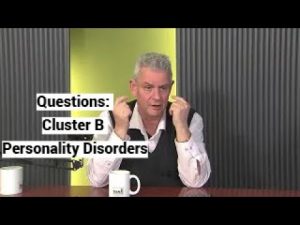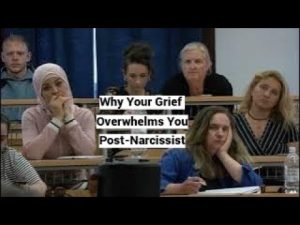- 1.1 1. Overdiagnosis of ADHD and Public Reaction
- 1.2 2. Criticism of Modern Psychology as Pseudoscience
- 1.3 3. Neuroscience and Its Relationship to Psychology
- 1.4 4. Problems Within Neuroscience
- 1.5 5. Valid and Invalid Neuroscience Domains
- 1.6 6. Lack of Clinical Entities in Psychology
- 1.7 7. Neurological Studies on Cluster B Personality Disorders
- 1.8 8. Philosophical and Methodological Problems in Neuroscience Research
- 1.9 9. Fundamental Limitations in Psychology
- 1.10 10. Problems Arising from Neuroscience-Psychology Collaboration
- 1.11 11. Future and Potential of Neuroscience vs Psychology
- 1.12 12. Historical and Cultural Nature of Psychological Diagnoses and Fads
- 1.13 13. Final Reflection and Critique
Analysis of ADHD, Neuroscience, and Psychology Neuroscientists
1. Overdiagnosis of ADHD and Public Reaction
- The speaker critiqued the widespread overdiagnosis of ADHD, emphasizing its unclear clinical entity status, lack of biological biomarkers, and vague treatments. The public’s reactions were mostly uninformed and influenced by AI-generated misinformation. [00:00]
2. Criticism of Modern Psychology as Pseudoscience
- Psychology is described as a pseudoscience that cannot be converted into true science regardless of statistical methods, lab coats, or medical claims. The speaker highlights the fundamental inability of psychology to reach scientific rigor. [01:10]
3. Neuroscience and Its Relationship to Psychology
- Combining neuroscience with psychology does not legitimize psychology as a science but rather contributes to pseudoscience or even scams.
- Real science cannot validate pseudoscience, as exemplified by the analogy of astrology combined with astronomy. Neuroscience by itself is partially scientific but fails when addressing psychological disorders. [02:00]
4. Problems Within Neuroscience
- Neuroscience suffers from a replication crisis with the majority of studies being non-reproducible due to the mutable nature of human subjects.
- The statistical power of neuroscience studies is low, often comparable to economics, undermining their reliability.
- Functional magnetic resonance imaging (fMRI) and event-related potentials show variable effects with many studies falling within insignificant statistical power ranges. [04:15]
5. Valid and Invalid Neuroscience Domains
- Solid neuroscience exists concerning brain functions like memory, cognition, emotions, and consciousness.
- Neuroscience fails completely in explaining complex psychological disorders, with no reliable evidence for brain correlates of such conditions. [09:30]
6. Lack of Clinical Entities in Psychology
- Psychological diagnoses, such as narcissistic personality disorder (NPD), lack consistency, universal applicability, and clinical entity status unlike medical conditions like cancer or tuberculosis.
- Diagnostic manuals disagree internally, and cultural influences cause further inconsistency in diagnoses. [11:30]
7. Neurological Studies on Cluster B Personality Disorders
- A large number of neuroscience studies on cluster B disorders (NPD, borderline, psychopathy) have methodological flaws such as extremely small, biased, and non-representative samples.
- Many studies use self-selecting volunteers with sample sizes as low as 3 to 30 participants, which is inadequate for validation.
- Studies are predominantly non-randomized, non-longitudinal, lack proper control groups, and ignore confounding factors like comorbidities (e.g., depression, anxiety, substance abuse). [13:00]
8. Philosophical and Methodological Problems in Neuroscience Research
- Causation vs correlation issues: existing brain-psychology links do not prove brain abnormalities cause psychological disorders.
- Issues of reverse causality remain unresolved due to a lack of longitudinal studies.
- Many studies confuse related but different constructs like dark personalities with narcissistic personality disorder. [18:20]
9. Fundamental Limitations in Psychology
- Ethical problems prevent conducting double-blind experiments, especially with vulnerable populations like infants.
- The psychological uncertainty principle: human subjects continuously change due to internal and external stimuli, challenging replication and reliability.
- Uniqueness of psychological experiments and undergeneration of testable hypotheses limit psychology’s scientific feasibility.
- Psychological constructs are often internally consistent narratives but lack external verifiability. [20:10]
10. Problems Arising from Neuroscience-Psychology Collaboration
- The merging fields tarnish each other’s credibility; neuroscience borrows bad reputation from psychology, while psychology claims false scientific legitimacy.
- Many neuroscience concepts contradict one another, such as neuroplasticity undermining the study of a fixed brain.
- The speaker calls much current neuroscience research on psychological disorders “not serious” and akin to scams due to methodological and conceptual failures. [23:30]
11. Future and Potential of Neuroscience vs Psychology
- Neuroscience has the potential to become a true science in 100-200 years if it focuses solely on fundamental brain functions.
- Conversely, psychology lacks a scientific future due to its intrinsic foundational issues.
- Advice from Wundt encourages limiting neuroscience to studying building blocks like memory and cognition while rejecting pseudoscientific fields like psychoanalysis. [27:40]
12. Historical and Cultural Nature of Psychological Diagnoses and Fads
- Psychology is influenced by changing cultural norms, evident in historical misdiagnoses (e.g., autism, schizophrenia, depression, homosexuality).
- Different diagnostic manuals disagree on ADHD and even admit the lack of reliable diagnostic tools for it.
- This variability calls into question the seriousness of psychological diagnoses and their neuroscientific explanations. [30:40]
13. Final Reflection and Critique
- The speaker questions why serious neuroscientists ally with psychology, thereby damaging their discipline.
- The talk ends with a suggestion that such a collaboration is self-destructive and driven by motives other than scientific rigor. [32:50]






